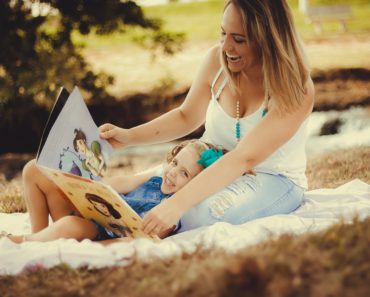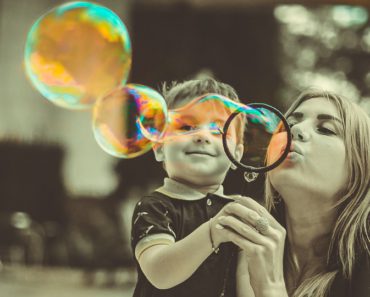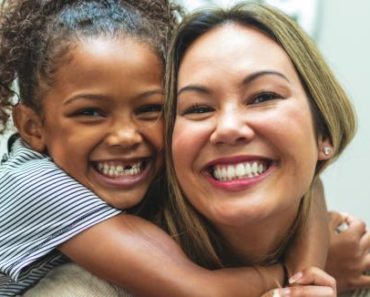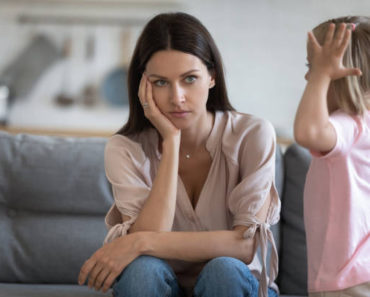Contents
- 1 The Ideal Age for Pregnancy: Finding the Best Time to Start a Family
- 2 The Biological Factors
- 3 The Personal Factors
- 4 The Social Factors
- 4.1 What is the ideal age for women to have children in terms of their overall health and fertility?
- 4.2 Are there any potential risks or complications associated with having children at an older age?
- 4.3 How does the ideal age for having children vary across different cultures and societies?
- 4.4 Related Posts

The Best Age to Have Kids: When is the ideal time to embark on the incredible journey of parenthood? This article explores the various factors that influence the decision, such as career stability, financial readiness, and biological considerations. Discover the pros and cons of having children in your 20s, 30s, or 40s, and gain insights to make an informed choice for your future. Join us on Stepparent Magazine as we delve into this timeless debate and offer guidance for all aspiring parents.
The Ideal Age for Pregnancy: Finding the Best Time to Start a Family
The Ideal Age for Pregnancy: Finding the Best Time to Start a Family
Deciding when to start a family is a personal and complex decision that many couples face. There are various factors to consider, such as career goals, financial stability, and overall health. The ideal age for pregnancy varies for each individual and can depend on a multitude of factors.
In general, women in their twenties and early thirties are considered to be at their peak fertility. This is when the chances of getting pregnant are highest, and the risks of complications such as genetic disorders or miscarriages are relatively lower. Additionally, younger women usually have more energy and resilience to handle the demands of pregnancy and parenting.
However, it’s important to note that there is no one-size-fits-all answer. Many women choose to delay starting a family to focus on their education or career aspirations. This can lead them into their mid-thirties or even forties before they start trying to conceive. While it may be more challenging to get pregnant at this stage, advancements in reproductive technologies have made it possible for women to have successful pregnancies later in life.
On the other hand, starting a family at an older age may come with its own set of considerations. Women over the age of 35 face an increased risk of certain pregnancy complications, such as gestational diabetes and high blood pressure. It’s crucial for older women to consult with their healthcare providers and undergo thorough medical evaluations before trying to conceive.
Mental and emotional readiness also play a significant role in deciding the ideal age for pregnancy. Starting a family requires a great deal of commitment, patience, and emotional strength. It’s essential for individuals to feel prepared both mentally and emotionally before embarking on the journey of parenthood.
In conclusion, finding the best time to start a family requires careful consideration of various factors. While there might be an ideal age for pregnancy, it ultimately depends on each individual’s unique circumstances and priorities. Consulting with healthcare professionals and discussing the decision with one’s partner can help ensure a well-informed and confident choice.
The Biological Factors
The first subtitle addresses the biological factors that influence the best age to have kids. we explore how a woman’s fertility changes over time and how it can affect the chances of conceiving and having a healthy pregnancy. We discuss the concept of biological clock, explain the decline in fertility with age, and highlight the optimal age range for conception and pregnancy.
The Personal Factors
The second subtitle delves into the personal factors to consider when deciding the best age to have kids. We discuss how factors such as career goals, financial stability, and emotional readiness play a significant role in the decision-making process. Additionally, we explore the importance of considering one’s own physical and mental health, as well as the support system available to ensure a positive and fulfilling parenting experience.
The Social Factors
The final subtitle explores the social factors that can influence the best age to have kids. Here, we discuss societal norms and expectations, cultural influences, and the impact of social media on perceptions of parenthood at different ages. We also address the concept of “optimal” age in relation to social pressures and debunk any stigmas or misconceptions surrounding having kids at a specific age. Throughout this section, we emphasize the importance of making informed decisions based on individual circumstances rather than external societal pressures.
What is the ideal age for women to have children in terms of their overall health and fertility?
The ideal age for women to have children in terms of their overall health and fertility typically falls between the late teens and early 30s. In their 20s, women generally have a higher chance of getting pregnant compared to older age groups. This is because they usually have a regular menstrual cycle and better egg quality. Additionally, their bodies are more likely to bounce back after pregnancy and childbirth.
By the time women reach their 30s, fertility starts to decline gradually. The decline becomes more significant as they approach their mid-30s and continues to accelerate in their late 30s and 40s. After the age of 35, the risk of complications such as gestational diabetes, high blood pressure, and genetic abnormalities in the baby also increases. Furthermore, there is an increased likelihood of miscarriage and difficulties in conceiving.
It’s important to note that every woman’s fertility pattern is unique, and some women may experience challenges conceiving at younger ages while others may have successful pregnancies in their late 30s or beyond. However, from a general standpoint, aiming to have children in the early to mid-20s or early 30s can maximize the chances of both a healthy pregnancy and a successful outcome.
Are there any potential risks or complications associated with having children at an older age?
How does the ideal age for having children vary across different cultures and societies?
In conclusion, determining the best age to have kids is a highly personal decision that varies for each individual and couple. While there may be societal pressures or biological factors to consider, it is essential to prioritize one’s own readiness and stability before embarking on the journey of parenthood. Whether you choose to have children in your twenties, thirties, or beyond, remember that age does not define one’s ability to be a loving and nurturing parent. Trust your instincts, seek support from loved ones, and make choices that align with your values and aspirations. The true measure of success in parenting lies in the love and care we provide to our children, regardless of when we embark on this beautiful journey.







